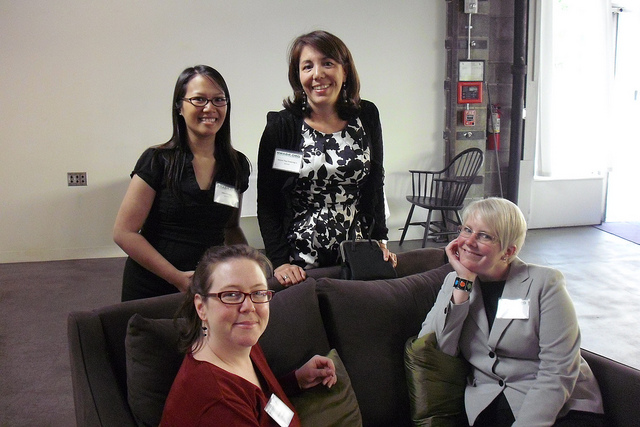By way of follow up to my post on “Raising Money From Strangers – First Time Founder Tips” I am delighted to share some “from the front line” dispatches from founders who offered advice based on their personal experience — specifically, their thoughts on what they wish they’d known when they started fundraising.
Gillian Morris is the co-founder and CEO of Hitlist, a travel app, and offers up a key observation that speaks to the opaque (and therefore frustrating) nature of early stage fundraising.
What I wish I had known: How to find the appropriate stage investor
I spent a lot of time trying (and usually succeeding) in getting in front of top-tier seed stage investors when our company was still very young — so young that there was no chance that they’d invest. Unless you have a very obvious track record with previous early stage startups, you’re not going to get a brand name seed fund to invest in you until you have very solid metrics. Before that, they’ll be happy to have an associate talk with you and mine information, but they’re not going to get involved (which would be too risky), and they’re not going to help out. I wish I’d known that at the very early stage, angel investors are the only ones who can really help your business get to the next level.
Allison McGuire the co-founder & CEO of Walc, a groundbreaking landmark-based navigation app for walkers offers these three pieces of advice:
It’s okay to say no: This may come as a shock, but all money is not equalSometimes you negotiate on terms, sometimes you take a check and thank the universe and sometimes you walk away. If an investor proves to be a giant pain or it just doesn’t feel right, walk. Clarifying what your deal breakers (are) — either internally or with your co-founder, if applicable — makes negotiation that much easier.
Confidence is key: You can’t manufacture confidence
Well, I suppose you can manufacture what looks like confidence, but in actuality, this is hubris or bravado. If you know you’ll be successful with your raise, you will be successful. It’s one of the most simple things that’s easy to forget. If you’re struggling with confidence, spend some time with yourself and your advisors (note: if you don’t have advisors, get them now). Find the answer to why you, over anyone else in the world, are going to pull this off. That will help you more than any traction stats.
Listen to opinions, then make a choice
This is, perhaps, the most valuable piece of advice I can give: I wish someone told me this before I started my business. People will always have opinions. Some voice these thoughts more loudly than others. For example: Lawyers will give you the most protective, conservative advice. Advisors can be really helpful but can have conflicting advice. Investors are all over the map. But here’s the deal: You’re the decision-maker. Oftentimes you have to make unpopular decisions, if it’s best for the business. Thank those that have given youfeedback, then just go with what feels right. If you mess up, you mess up. Welcome to startupland.
Andrea Guendelmanand Silvia Travesani are the co-founders of BeVisible, “La Primera Social Network for US Latinas.” They also have three messages based on their journey.
Focus on investors’ backstory
Investors are not just judging companies by potential returns. They may hear lots of pitches and see lots of companies with promise. But the final decision — the decision on which companies to pick out of a herd — often seems to come from the gut or the heart. Our company, BeVisible, is building a social media platform for Latinas. Our mission is to help Latinas, particularly millennials, connect with educational and career opportunities. This resonates with some investors on a personal level, and not just because they are Latinas. For many, it is about finding hidden potential among underdogs.
Don’t focus just on dollars
Potential investors can contribute in many ways before and beyond just money. They can provide valued advice and open up networks. You do need to be direct with “the ask,” but don’t let that get in the way with developing long-term relationships.
Recognize the dynamics in the pitch team: Investors are focusing on people more than products
They are carefully watching how your team interacts during the pitch. If people on the team have similar personalities, you need to work hard to assure the investors that the team will be balanced and firing on all cylinders.
Image credit: CC by NWABR




